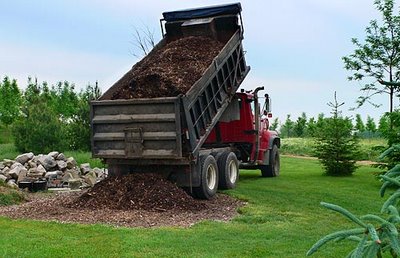So I was interested to read what perennials expert John Valleau, the chief horticulturist for the wholesale grower Heritage Perennials, had to say recently about the results of a reader survey he did on garden mulching techniques.
In his May 2006 Perennials.com newsletter, he had given the standard advice to always taper the mulch down to nothing immediately around the crowns and stems of perennials to avoid problems with rotting.
Then Quebec-based garden writer Larry Hodgson wrote in to say he thought that was all a garden myth. So, John asked his newsletter readers for their observations.
Here's what he had to say about the results in his July newsletter:
I was literally flooded with responses this month. Wow! Mulching must be a very hot topic, and here I was anticipating only a handful of entries.
I've taken some time to analyze the data, and the results for the #1 question on whether to taper the mulch or to pile it evenly around perennials worked out this way:
• 85% — spread mulch evenly over the bed
• 7% — doesn't matter, or depends on the particular plant
• 8% — taper the mulch or rotting may be a problem
BENEFITS of mulching you mentioned included: reduced watering, because the mulch holds the moisture in the soil; cooler roots during summer heat; greatly reduced weed seed germination (figures in the 80% fewer weeds were mentioned a few times); mulches add beneficial organic matter; mulches encourage plenty of soil microbes, worms and other beneficial critters; mulch looks aesthetically pleasing.
The most important thing you reported over and over again is that mulching seems to make your perennials grow better!
Read the entire mulch article. It turns out that you can spread mulch a lot thicker than many experts tell you without doing harm to your perennials.




